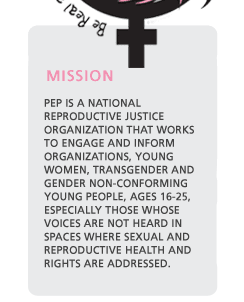The Gonzales v. Carhart Supreme Court decision that was released on April 18, 2007, and which banned the intact D&E abortion procedure contains many new challenges to the reproductive justice movement. There are certainly new legal challenges, as this decision has reversed decades of legal precedent on a number of key issues.
Most importantly in my mind, however, this decision takes a very negative view of women. At first, it was difficult for me to get a clear picture of the implications of Gonzales. On the one hand, the decision restricts only one form of abortion that accounts for only a small percentage of total abortions performed in the United States each year. On the other hand, the decision includes restrictions on doctors and women�s decision-making abilities about the procedure that are unprecedented�the procedure is banned even if it is deemed to be the healthiest for the mother.
However, whether or not you believe in abortion, and whether or not you believe that the decision was just, the words and attitude of the court are still alarming. The Gonzales decision �saves no fetus� as Justice Ginsburg pointed out in her dissent. In individual cases women who previously might have undergone the abortion procedure in question, the Intact D&E, still have another, albeit potentially less safe option. Additionally, as many doctors and women�s rights advocates point out, this decision does nothing to reduce the number of abortions overall that women in the United States may seek. Rather, Justice Kennedy�s majority opinion lays out a worldview in which government is allowed to promote a moral vision of �life� above the beliefs and value systems of individual Americans. It seeks to protect women from themselves, and cites the fact that �some women come to regret their decision to abort� as a justification for prohibiting this procedure. In short, the language of the Court is insulting to women, and harkens back to the pre-Roe days�even, perhaps, the pre-vote days.
As Lynn Paltrow, executive director of National Advocates for Pregnant Women pointed out in an interview with Laura Flanders on Air America shortly after the decision was announced, this attitude is not restricted only to women who
are seeking abortions, but extends into other areas as well. Paltrow cites numerous examples of women who have been forced to have cesarean sections against their will. Further, she discusses the numerous ways in which, through legislation such as the Unborn Victims of Violence Act, women�s rights, and specifically pregnant women�s rights are being replaced by fetal rights. The entire decision reflects this shifting value system. In the wake of this decision, progressives, and especially those in the abortion-rights movement, must look beyond abortion. Clearly, what is at stake in this decision is not the fate of abortion, per se, but is a larger issue�the issue of how the Court and Congress treat women, youth and their families. | 





